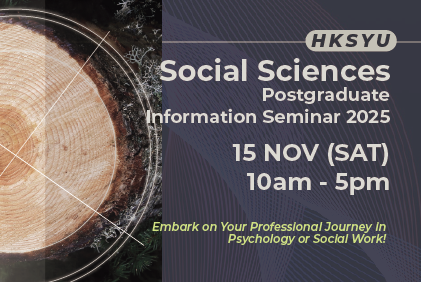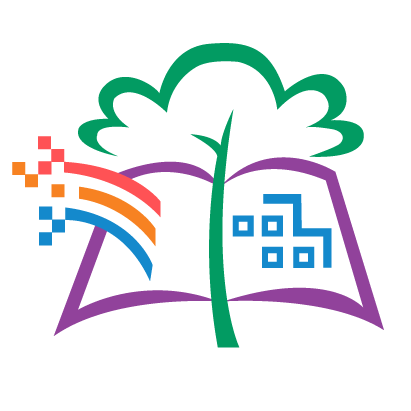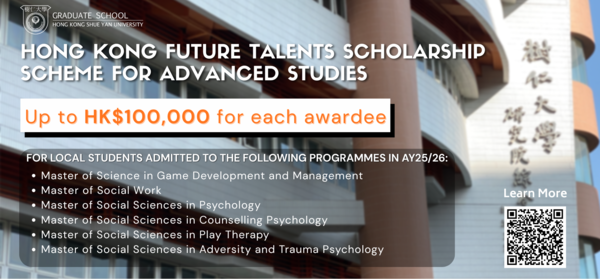Director's Message
The Master of Social Work (MSW) programme is designed to provide students with a thorough understanding of social work philosophy while integrating technology and interdisciplinary collaboration into traditional practices. Our goal is to cultivate leaders who harness technology's potential, embrace diverse perspectives, and engage in collaborative problem-solving to enhance the well-being of individuals, families, and communities, fostering a more just and inclusive society.
Central to our programme is the belief that social work is rooted in an understanding of human behavior and social systems, alongside the dynamics of power and privilege. The MSW curriculum offers a solid foundation in theories and frameworks vital for effective practice, emphasizing various intervention approaches, ethical considerations, and cultural competence when working with diverse populations.
Recognizing the integral role of technology in modern society, the programme bridges conventional social work methods with technological advancements. Students will learn to utilize digital tools and platforms to improve service delivery and community engagement. Through interdisciplinary collaborations with professionals from various fields, we prepare graduates to address complex social issues effectively, equipping them with the skills and ethical foundations necessary for transformative practice in the evolving landscape of social work.
Prof. Esther Chow Oi Wah
Programme Director
Master of Social Work
Recognitions
The Master of Social Work (MSW) Programme is a professional training programme leading to a professional qualification in social work. Graduates can apply for the Registered Social Worker (RSW) status with the Social Workers Registration Board (SWRB). Students who hold a first degree in any discipline and wish to pursue a professional career in social work can apply.
Application Period for 2026/27 Cohort
Main Round Application Period: 17 November 2025 - 31 January 2026
Main Round Admission Interview Period: February 2026
Social Sciences Postgraduate Information Seminar 2025

Join our Social Sciences Postgraduate Information Seminar 2025 to explore the latest programmes from the Department of Counselling and Psychology and the Department of Social Work.
Click here for the seminar video.
Programme Aims
- Equip non-social work degree holders with required professional social work knowledge, innovative technologies, and digital practice skills, enabling them to address the increasingly complicated socio-economic changes in the community.
- Develop students’ sense of social responsibility and integrity in upholding the core values and ethics of the social work profession.
- Enhance global and regional outlook and develop students’ management competencies to contribute to the sustainable development of society through the micro, mezzo, and macro levels of social work practice.
- Enable students to draw on their prior academic training to contribute to and apply interdisciplinary practices and research to serve people from diverse backgrounds and create social impact.
Learning Outcomes
Upon successful completion of this programme, students should be able to:
- Apply and elaborate advanced social work knowledge and skills as well as digital practice with informed professional judgment and ethical adherence to address and handle complex case situations and social issues.
- Develop and defend professional identity in executing the roles and responsibilities of a social worker with integrity and accountability, exercising professional values and ethics in all practices.
- Appraise leadership, management knowledge, and skills in problem-solving, communication, collaboration, and conflict resolution, leading to the well-being of service users and the advancement of social justice at the micro, mezzo, and macro levels.
- Design interdisciplinary research-based practice and make use of practice-based research to produce measurable impact and positive changes at individual and community levels.
- Analyze, criticize, and interpret complex social issues and policies that affect different sectors of society at local, regional, and global levels.
Curriculum Structure
Students are required to complete 58 credits, which include:
12 Core Courses: 36 Credits- Human Diversity, Behaviour and Social Environment
- Interprofessional Collaboration in Social Work Practice

- Agency, Community, Stakeholders, and Systems Engagement – Social Work Mezzo Practices
- Sustainable Development and Social Work Macro Practices
- Advanced Interviewing Skills and Modalities – Social Work Micro Practices
- Globalisation and Regionalisation in Social Welfare and Social Policy
- Law and Ethics in Social Work
- Practice-based Research, Evaluation and Social Impact Assessment
- Advanced Digital and Technological Applications in Social Work Practice

- Integration and Consolidation in Interdisciplinary Social Work Practice I
- Impact Creation and Leadership in Social Service Management
- Integration and Consolidation in Interdisciplinary Social Work Practice II
 Continuing Education Fund
Continuing Education Fund
This course has been included in the list of reimbursable courses under the Continuing Education Fund.
This course is recognised under the Qualifications Framework (QF Level [5]).
2 Elective Courses: 6 Credits
- Advanced Intervention in Mental Health and Wellness
- Managing Crisis and Trauma
- Professional Practice with Families and Complex Issues In Contemporary Society
- Social Work in Public Health
- Practice-based Research Project
- Narrative Therapy: Theory and Practice
- Therapeutic Play with Children in Social Work Practice
- Cognitive Behavioural Therapy in Mental Health Practice
- Social Work in Educational Settings
- Gerontological Social Work Practice
2 Fieldwork Placements: 16 Credits (Total: 800 hours)
- Full-time Students : One Block + One Concurrent Placement
- Part-time Students : Two Concurrent Placements
Pre-placement Workshop (100 hours/ Non-credit bearing)
Special Features
- Digital Social Work Practice: development and application of digital technology in social work practice
- Interdisciplinary Collaboration: application of social work knowledge in interdisciplinary collaboration; arrangement of fieldwork placement in interdisciplinary service settings
- Sustainable Development: Integration of United Nation’s 2030 Global Agenda for Sustainable Development in the curriculum
- Global and Regional Outlook: Opportunities to contribute to global and regional research programme; overseas placement in Canada, New Zealand and Singapore
- Leadership Training: Opportunities to shallow senior management of NGOs for leadership and management training
- Small Class Teaching: about 70% of classes will adopt small class teaching mode
Mode of Study
- 2-year Full Time (Classes will be arranged on weekday evenings and Saturdays in Year 1)
- 3-year Part Time (Classes will be arranged on weekday evenings and Saturdays during the study years)
| Learning Arrangement for 2-year Full Time Mode | |||||
|---|---|---|---|---|---|
| Year 1 | Year 2 | ||||
| Semester | Sem 1 | Sem 2 | Sem 3 | Sem 1 | Sem 2 |
| Core Course | 4 | 4 | - | 2 | 2 |
| Electives Course | - | - | - | 1 | 1 |
| Fieldwork Placement | - | - | Summer Block Placement | Concurrent Placement | |
| Learning Arrangement for 3-year Part Time Mode | ||||||||
|---|---|---|---|---|---|---|---|---|
| Year 1 | Year 2 | Year 3 | ||||||
| Semester | Sem 1 | Sem 2 | Sem 3 | Sem 1 | Sem 2 | Sem 3 | Sem 1 | Sem 2 |
| Core Course | 3 | 3 | 2 | 1 | - | 1 | 1 | 1 |
| Electives Course | - | - | - | - | 1 | 1 | - | - |
| Fieldwork Placement | - | - | - | Concurrent Placement | - | Concurrent Placement | ||
Fieldwork Placement
Students must complete 800 hours of two supervised fieldwork placements within the study period.
| Placement Arrangement for Full-time Mode | ||||
|---|---|---|---|---|
| Placement | Year | Credits | Nature | Duration |
| 1st Placement (Summer Block) | 1 | 8 |
|
|
| 2nd Placement (Concurrent) | 2 | 8 |
|
|
| Placement Arrangement for Part-time Mode | ||||
|---|---|---|---|---|
| Placement | Year | Credits | Nature | Duration |
| 1st Placement (Concurrent) | 2 | 8 |
|
|
| 2nd Placement (Concurrent) | 3 | 8 |
|
|
Admission and Selection
A bachelor’s degree with first or second-class honors from a recognized local or overseas university. Preference will be given to applicants who have attained undergraduate training in a social science discipline. The minimum GPA for a non-honors degree should be 3.0 out of 4.0.
Admission interviews will be conducted to select suitable applicants for the programme. The interviewers will evaluate the applicants in terms of their language fluency, presentation skills, attitude, knowledge of current affairs, and basic knowledge of social work.
Applicants who graduated from a non-social science degree programme/ without a basic understanding of social work and social welfare will be required to attend a non-credit course, SW100A, “Introduction to Social Work and Social Welfare” at QF Level 4 in 1st semester of Year 1.*
*An Additional fee of HK$5,400 is required for the summer introduction course.
Each applicants must submit a Personal Statement Form in English within 1,500 words, describing their motivation for applying for the MSW programme and outlining their future professional development plan. The personal statement should be uploaded to the online application system.
Applicants should provide two referees to support their application. The confidential recommendation will take part in the online system by referees.
Non-standard admission will be considered on a case-by-case basis.
Language Requirement
Applicants whose entrance qualification is issued by an institution where the medium of instruction is not English should also fulfill the following minimum English proficiency requirement:
- Overall band score ≥ 6.0 in the International English Language Testing System (IELTS) (Academic) test; or
- Test of English as a Foreign Language (TOEFL) score of 550 (Paper-based Test) or 79 (Internet-based Test) or 213 (Computer-based Test); or
- Other equivalent qualifications acceptable to the University.
The program includes a practicum component that requires interaction with local social service users, so proficiency in Cantonese is preferred.
Tuition Fees
HK$319,000 (@$5,500 x 58 credits)
Scholarship
Hong Kong Future Talents Scholarship Scheme for Advanced Studies

Starting from the 2025/26 Academic Year, the Education Bureau (EDB) has launched the Hong Kong Future Talents Scholarship Scheme for Advanced Studies (FTSS) to attract meritorious local students to pursue further studies in areas of strategic priority for the development of Hong Kong.
If you're a local student enrolling in the Master of Social Work in the 2025/26 Academic Year, you're eligible to apply for this exciting scholarship!
The maximum scholarship amount will be $100,000 per eligible student for the entire program, regardless of the actual study period or mode of study. The scholarship will be disbursed as a one-off payment upon the student's successful graduation and attainment of satisfactory academic results.
For more information: https://gs.hksyu.edu/en/Prospective-Students/FinancialAssistance
Financial Aid for Postgraduates (for local students only)
Extended Non-means-tested Loan Scheme (ENLS)
ENLS is set up by HKSAR government, the ENLS provides financial aid in the form of loans to eligible students to settle the tuition fees of specific post-secondary / continuing and professional education courses in Hong Kong. The ENLS for 2025/26 academic year is now open for application.
Read more: Extended Non-Means-Tested Loan Scheme (ENLS)
Continuing Education Fund (CEF) (Electronic Application Only)
Two courses in Master of Social Work programme are eligible for reimbursement through the Continuing Education Fund (CEF). Students fill in and submit the electronic Continuing Education Fund Application FOrm and relevant supporting documents online.
Read more: CEF Reimbursement Procedures
Useful documents:
Continuing Education Course Search
Guideline for CEF Application
Contact Us
General Enquiry:
Tel: 2804-8453
Email: msw@hksyu.edu
Office Hours:
Monday to Friday: 9:00am - 1:00pm, 2:00pm - 6:00pm
Other material
Transcript Request Form
Programme Leaflet
Course Aims
For the course aims of SW prefix courses offer, please click here.


